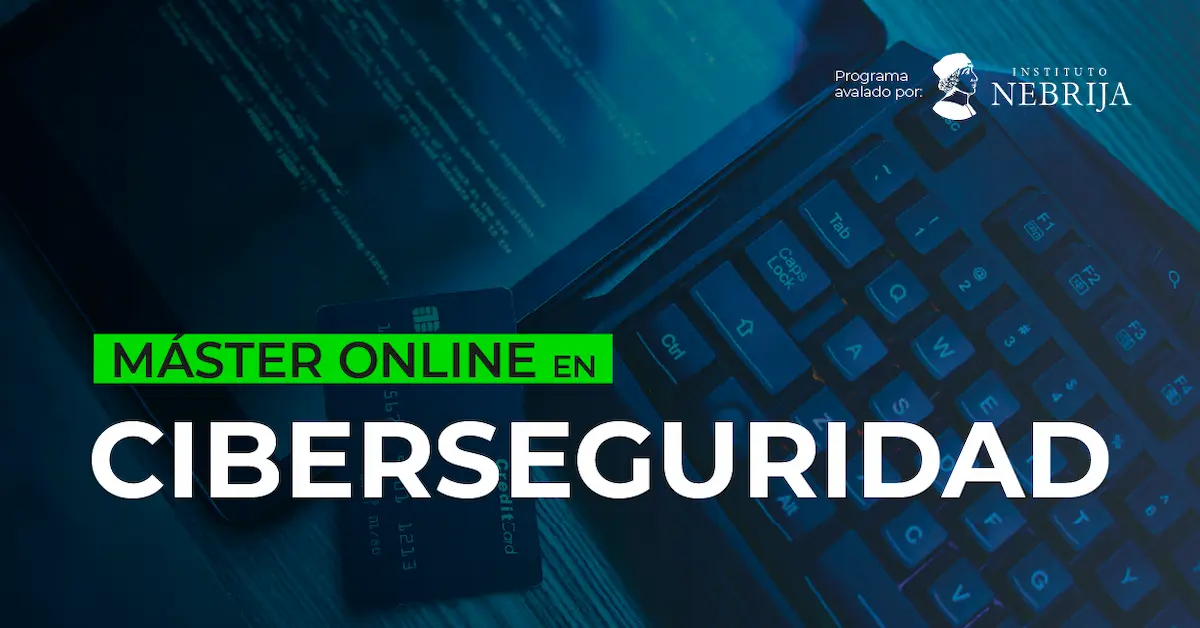Technological advances have brought with them a considerable increase in the number of cases of computer crime. Fraud poses unique challenges for law enforcement, which is constantly forced to adapt to new forms of cybercrime. Largely due to the complexity of the methods employed by offenders.
This just goes to show how important it is to understand and proactively address cybercrime, both individually and institutionally, so that we can protect the integrity of our systems.
But are you clear what is a computer-related crime? Below we explain the characteristics of this type of fraud, how it is dealt with in the Spanish criminal code and give you some examples.
What is a computer-related crime?
A computer crime is any illegal activity involving the use of computer systems or networks, ranging from malicious intrusions to data theft, manipulation of online information, cyberbullying, online defamation or violation of privacy.
Computer fraud poses a major threat to cyber security, data integrity and trust in digital systems. For this reason, governments around the world, as well as the cybersecurity professionals work tirelessly to improve their defences and protect themselves against such risks.
What are considered computer-related crimes under the Penal Code?
In recent years, digital crimes have not only not increased, but have become more and more common. increasingly sophisticated, forcing the authorities to keep abreast of such threats.
In this context, Spanish legislation sets the legal guidelines for identifying and punishing cyber fraud, having evolved in recent years to adapt to the rapidly changing digital landscape.
Computer-related crime is criminalised in the Cybersecurity Penal Code as an action that undermines the confidentiality, integrity and availability of systems, data or software. A definition that covers a broad spectrum of activities, from unauthorised intrusions to malicious manipulation of digital information. But in addition, unauthorised interference with the operation of computer systems is also an act punishable by law.
Currently, the Criminal Code addresses computer-related crime under the umbrella of several provisions, mainly the cybercrime and the computer fraud offence.
- The cybercrime relates to the destruction, damage or alteration of data, software or computer systems. Basically, any action that causes damage to the integrity of information stored on digital media.
- The computer fraud in the Criminal Code refers to the use of deception, trickery or manipulation of information in telematic or cyber environments for the purpose of unlawful financial gain. This provision recognises the increasing prevalence of online scams and seeks to sanction those who use digital means to carry out fraudulent actions.
Types of cybercrime and examples
The variety and sophistication of the technological crimes constantly challenge Internet security. It is therefore essential to understand the different threats lurking in cyberspace in order to strengthen our defences.
1. Social engineering pishing
This is a computer fraud that can range from the online identity theft to phishing schemes aimed at tricking users into revealing sensitive information. Typically, cybercriminals disguise themselves as trusted entities to obtain personal information, such as usernames and passwords.
A classic example is the sending of fake emails pretending to be from recognised services, such as the bank or the electricity company, requesting confidential information. These are so sophisticated that they are even difficult for experienced users to detect.
2. Hacking offence
The illegal access to computer systemsHacking, commonly known as hacking, is a cybercrime that can have very serious consequences. Hackers use their skills to infiltrate systems, access sensitive data and, in some cases, disrupt the normal functioning of digital platforms.
A common example is attacks on government databases, where hackers can obtain sensitive information and even compromise national security.
3. Intellectual property offences
The intellectual property theft is another type of cybercrime that has been gaining prominence in recent years. Cybercriminals can copy, distribute or steal IP-related elements, such as software, designs or proprietary data, causing significant losses to both individuals and businesses.
The most common examples include software piracy and unauthorised distribution of copyrighted content, mainly affecting the entertainment and technology industry.
4. Denial of Service Attacks (DDoS)
These cybercrimes aim to disable online services by flooding them with fake traffic. As a result, large platforms and websites can be temporarily disabled, as has happened on some occasions in attacks on financial and government services.
5. Threats of sextortion
Criminals threaten to reveal compromising information, such as intimate images, unless a ransom is paid. This type of crime affects the privacy and emotional security of victims.
Become an expert in cybersecurity and fight online crime
As mentioned above, the Penal Code Spanish law provides a solid legal framework for tackling cybercrime, recognising the importance of protecting the integrity and security of digital systems.
However, it must be borne in mind that constant changes in the technology sector require constant efforts to adapt laws to deal with emerging threats.
In this context, collaboration between different sectors is essential to minimise risks. It is therefore not surprising that, in recent years, the demand for professionals in this field has increased. cybersecurity experts has experienced significant growth, and within this framework IMMUNE is positioned as a key player in the training of experts in this field.
We offer a complete Cybersecurity Bootcampa comprehensive programme designed to acquire professional competences in the technical areas of ethical hackingBecome a cybersecurity expert to fight against cybercrime!
If you are looking for technology training fill in the form for more information.

